
As food allergies increase in prevalence, there has been a lot of conversation surrounding allergy prevention from infancy. This includes maternal diet, breastfeeding versus formula feeding, and the early introduction of allergens as complementary foods. As allergies continue to rise around the world with a rate of 4-6% among children, researchers are looking deeply at the relationship between early feeding methods, complementary feeding and potential protective effects from developing food allergies. So far there have been conflicting results and findings. The controversy about how to introduce allergens, when and how much, continues to grow.
We’ve asked our infant nutritionist on staff to shed light on some popular questions and share with us the latest in research and findings.
1. Does breastfeeding provide protective benefits from food allergies? More, same or less than formula?
Yes, breastfeeding is clearly the preferred method of infant nutrition in most cases because of its nutritional, immunological, and psychological benefits. In general, studies reveal that infants fed formulas based on cow´s milk or soy protein compared with breast milk have a higher incidence of atopic dermatitis and wheezing illnesses in earlier childhood.
Exclusive breastfeeding for at least 4 months and up to 6 months of age seems to reduce the incidence of atopic dermatitis and eczema for children in the first 2 years of life, to reduce early onset wheezing before the age of 4 years, to reduce the risk of asthma in the first 5 years and to reduce the incidence of cow's milk allergy, but not food allergy in general, in the first 2 years.
Evidence for an overall protective role of breastfeeding against allergic diseases is still controversial even though exclusive breastfeeding is recommended as the “gold standard” for infant nutrition during the first 6 months of life. Human milk is not only considered the ideal nutrition source for term infants during the first six months of life by providing nutrients needed for growth and development, but it also provides antimicrobial and immunomodulatory factors providing defense against infections.
Recommendation:
Exclusive breastfeeding for at least 4 and up to 6 months is endorsed. If high risk infants cannot be breastfed, hydrolyzed formula appears to offer advantages to prevent allergic disease and cow´s milk allergy.
2. Is it helpful or not for moms to avoid allergens while pregnant?
Simply put, maternal elimination diets during pregnancy and lactation are not recommended for allergy prevention. (Heine 2018)
The Healthy Start study in Denver examined whether an association existed between how the mother ate during pregnancy, the mother’s history of allergic disease and whether the child developed eczema and/or a food allergy.
“We surveyed 1,315 pregnant women and recorded their diet during pregnancy, as well as their history of allergies,” says Carina Venter, PhD, RD, ACAAI member and lead author of the study. “We found that children of mothers with poor dietary diversity, along with a maternal history of allergic disease were more likely to develop eczema and/or food allergy. Of the mothers classified as having both poor dietary diversity and having a personal history of allergic disease, 33 percent of their children were diagnosed with eczema and/or food allergy by age 2 years. Of the remaining mothers who were classified as having either good dietary diversity, with or without a personal history of allergic disease, or as having poor dietary diversity with no personal history of allergic disease, 21 percent of their children were diagnosed with eczema and/or food allergy by age 2 years.”
“Pregnant women – especially those with allergies – should be aware that their diet during pregnancy can affect their child’s chances of developing eczema and/or food allergies” says allergist David Fleischer, MD, ACAAI member and co-author of the study.
(https://acaai.org/news-roundup-breaking-news-how-prenatal-diet-delivery-mode-and-infant-feeding-practices-relate)
Recommendation: Pregnant women should strive for a healthy, natural, and diverse diet with a wide variety of vegetables, whole grains, fresh fruits, and proteins. One free government resource for nutritional guidance is My Plate.
3. Is it helpful or not for moms to consume allergens while pregnant?
Currently, there aren’t specific recommendations to definitively prevent allergies in a pregnant woman’s unborn child. But most experts support maintaining a well-balanced diet throughout pregnancy and lactation, as specific restrictions of key allergens haven’t been shown to prevent the future development of allergic disease in children.
Recommendation: There is no need to avoid food allergens during pregnancy, and there are no guidelines which actively recommend intake of food allergens. Recommended is a healthy, varied diet.
4. Is it helpful or not for moms to avoid allergens during breastfeeding?
It’s important that mothers exclusively breastfeed their infant for at least the first 4 months of life whenever at all possible.If you have allergies on either side of the family, it may be beneficial to avoid the foods you or your baby’s father are sensitive to while you are breastfeeding. It is also helpful to breastfeed frequently. If you have a problem with dairy, for instance, proteins from cow’s milk present in your own milk can cause problems for your baby. (https://www.llli.org/breastfeeding-info/allergies/)
Recommendation: Breastfeed exclusively for at least up to 4 months. Keep a close eye on baby and watch for allergic reactions. Consult with your pediatrician to see if an elimination diet during breastfeeding might help determine the cause.
5. Is it helpful or not for moms to consume allergens during breastfeeding?
Current high-quality evidence suggests that avoidance of a certain allergen during breastfeeding will notpreventallergies in baby. Some evidence suggests that a maternal diet rich in fibers, antioxidants, and n-3 PUFAs might promote a protective immunomodulatory role, also mediated by changes in microbiota. However, further studies are needed to highlight the role of maternal nutrition in the development of food allergy in offspring. Evidence for an overall protective role of breastfeeding against allergic diseases is still controversial, even though exclusive breastfeeding is recommended as the “gold standard” for infant nutrition during the first 6 months of life.
Recommendation: Similar to pregnancy, avoidance of allergens has not shown to have any protective effect against developing allergies in baby. Again, a wide varied maternal diet during lactation and exclusively breastfeeding for up to the first 6 months are shown to give the greatest benefits to baby.
6. Should moms introduce allergens early to baby (4 months of age) or not?
Between 4 and 6 months of age, complementary foods are necessary to support growth and to supplement nutritional needs.
The AAP recommends the introduction of complementary foods be delayed until the infant is at least 4 months old, but exclusive breastfeeding is preferred until 6 months of age.The expert panel from the European Academy of Allergology and Clinical Immunology recommends introduction of complementary foods between 4 and 6 months of age in breastfed or formula-fed infants.The World Health Organization recommends exclusive breastfeeding for the first 6 months of life.
There is no current data supporting exactly when and how to introduce typical allergenic foods into the infant diet. Most pediatric guidelines suggest first introducing single ingredient foods between 4 and 6 months of age, preferably at home, at a rate not faster than one new food every 3 to 5 days. If there is no apparent reaction, the food can be introduced in gradually increasing amounts. In general, one should not start solids with introducing the highly allergenic foods. If the infant develops an allergy to some specific food, then this food should be avoided. It’s important to consult your pediatrician during this process.
Recommendation: Slowly begin introducing solid foods between 4-6 months in age when baby shows signs of readiness. If food allergies are a concern, start with single ingredients, and monitor baby’s reaction after each introduction. Consult your pediatrician with any questions.
7. Should moms avoid offering allergens until after a certain age or not?
There is no current data to suggest that cow’s milk protein (except for whole cow’s milk), egg, soy, wheat, peanut, tree nuts, fish and shellfish introduction into the diet need to be delayed beyond 4-6 months of age. Complementary foods may include the highly allergenic foods once a few other complementary foods are tolerated first.
8. Is there anything we know concretely about food allergy prevention that could inform parents' decisions about how they feed their baby?
I would say that mothers and fathers should start as early as possible with working on improving their own diets to work up to a healthy, varied, whole food approach. This is not only for their own health, but the health of the whole family. Mom and dad set a powerful example for their children, and they also dictate what kinds of foods are kept in the house. In addition to eating healthier themselves, learning basic skills in the kitchen is essential for family meal preparation and leads to a better attitude towards foods in the long run. With cooking skills, it is also more likely to maintain healthy eating habits and avoid eating out or relying solely on packaged convenience foods for the family. Finally mom and dad should educate themselves on label reading. Because we all need conveniences, understanding the difference between two packaged foods and how they are processed, what’s in them, etc, will guide you to better choices all around. In the case of a dietary allergy in the family, all of these habits: clean eating, home cooking, and label reading, will not only be helpful, butessential, in accommodating the allergy. While researchers are just scratching the surface on this issue, and much is still to be discovered, one concrete thing we do know is that if an allergic reaction is suspected in an infant, consult your pediatrician and avoid offering that food.
Looking for a simpler way to start solids? Try Amara's Introduction to Solidspack. Designed and approved by our team of scientists and chefs for the ideal beginning, our blends are both safe and delicious. Powered by mother's milk or formula for an extra boost of nutrition and familiarity, babies love starting solids with Amara. And with fresh baby food ready in seconds, you'll love it too.


Don't take our word for it, see what hundreds of happy moms are saying about Amara.
 Amara's Chief Nutritionist: Sonia A. Schiess, PhD in Nutrition, specialized in the introduction of solids and liquids to infants. Sonia's passion started when she was studying nutrition and dietetics in university, completing a post degree in Human Nutrition. Later on, she completed her PhD as a nutritionist, with a focus on introducing food in the first year of a baby's life. Her wide experience gives her a unique perspective, drawing from her time in clinics, hospitals, independent consulting and university research. She's authored several papers including "Introduction of complementary feeding"; "Introduction of potentially allergenic foods in the infant's diet during the first year of life" and "Intake of energy providing liquids during the first year of life" in five European countries. The combination of Sonia's science and our chef's magic ensures every Amara product is not only optimized for your baby's health but is delicious as well.
Amara's Chief Nutritionist: Sonia A. Schiess, PhD in Nutrition, specialized in the introduction of solids and liquids to infants. Sonia's passion started when she was studying nutrition and dietetics in university, completing a post degree in Human Nutrition. Later on, she completed her PhD as a nutritionist, with a focus on introducing food in the first year of a baby's life. Her wide experience gives her a unique perspective, drawing from her time in clinics, hospitals, independent consulting and university research. She's authored several papers including "Introduction of complementary feeding"; "Introduction of potentially allergenic foods in the infant's diet during the first year of life" and "Intake of energy providing liquids during the first year of life" in five European countries. The combination of Sonia's science and our chef's magic ensures every Amara product is not only optimized for your baby's health but is delicious as well.
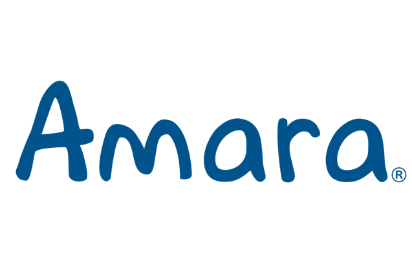
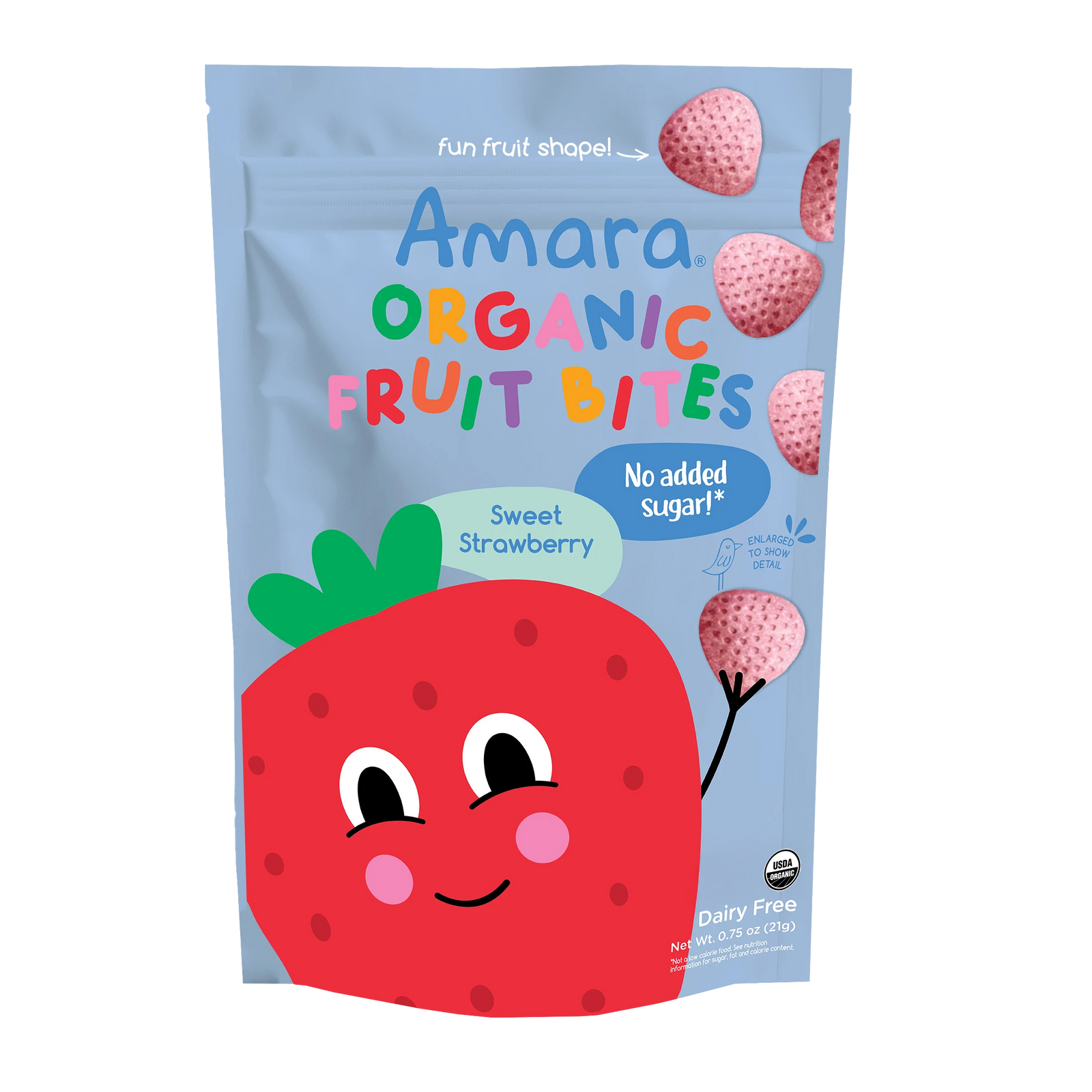



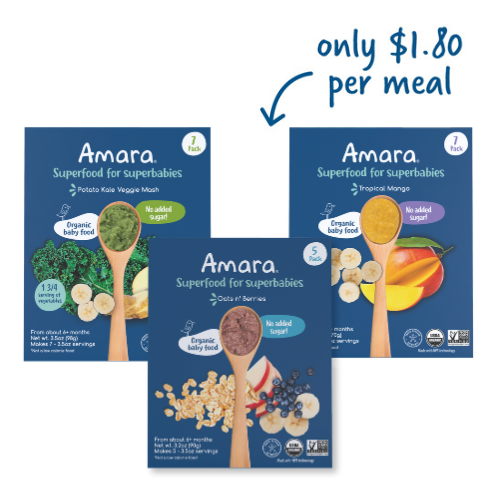
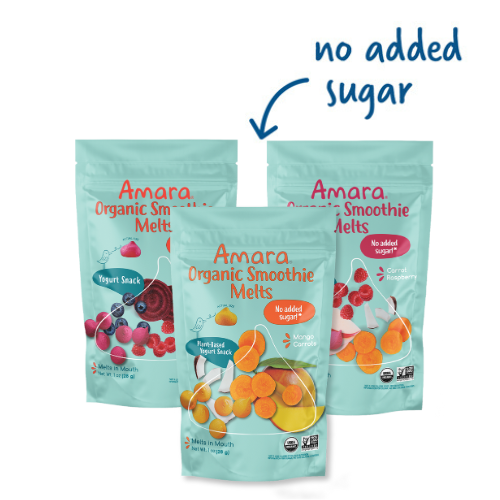
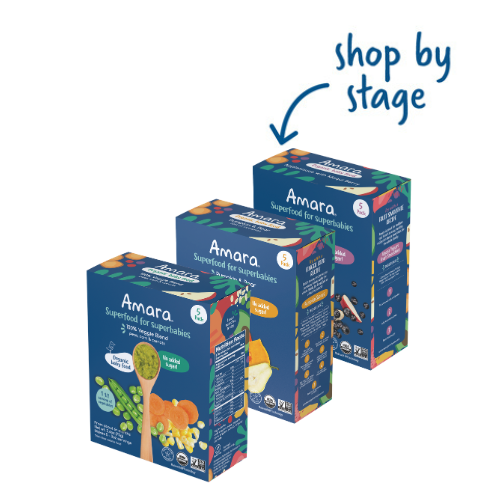
Leave A Comment